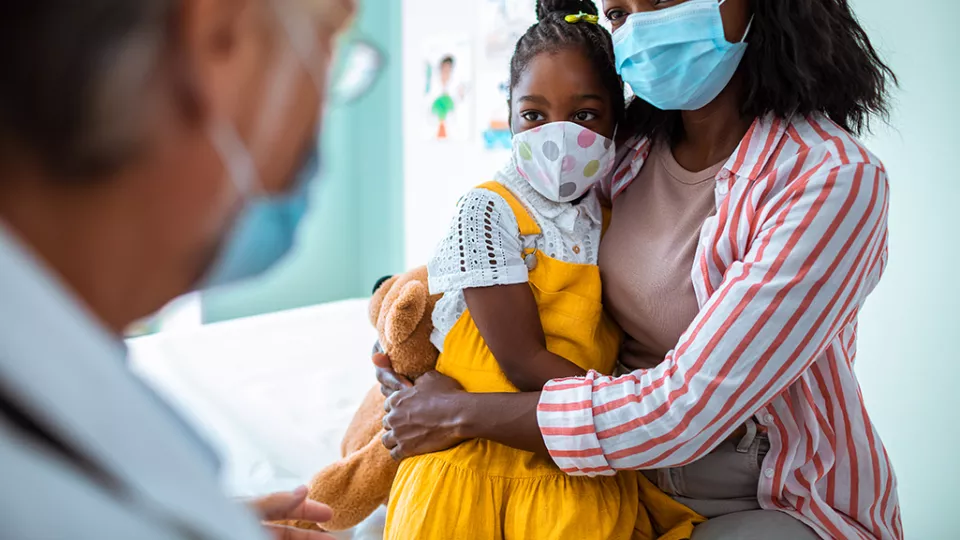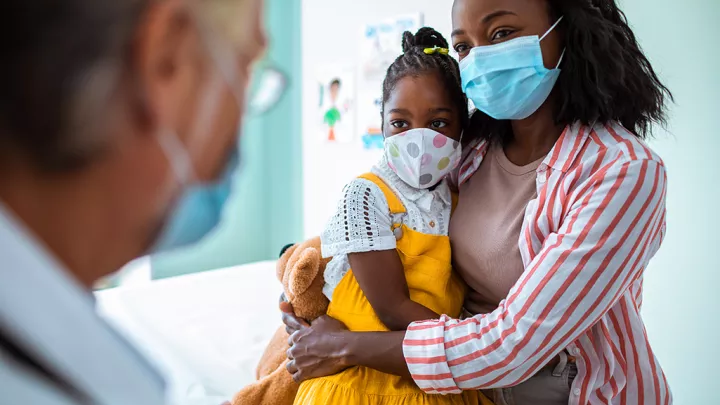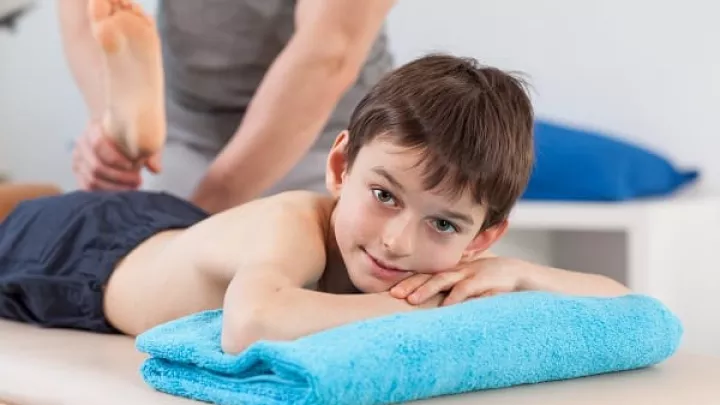
$1.92 Million Grant Funds Research into Pain Management Techniques for Kids
Medication works well to blunt the pain of surgery or illness in the short term but can lose effectiveness over time for children with chronic conditions or who are undergoing palliative care. Medication can also have harmful side effects, increase pain, and potentially lead to addiction. At Children’s Hospital Los Angeles, the Pain Management Clinic led by Jeffrey I. Gold, PhD, has been developing integrative medicine practices as complements to medication to help children better manage the pain and anxiety associated with treatment or surgery.
According to Dr. Gold, the principal investigator on the new study, integrative health services such as acupuncture, yoga, biofeedback, mindfulness, and massage have been demonstrated to lead to reduced stress and pain, improved sleep and mood, decreased pain, increased immune response, and a deeper connection between mind and body. These services have also been shown to affect several health economic outcomes, such as shorter hospital stays, fewer emergency room visits, and improved post-operative pain recovery. “CHLA is at the leading edge of research on finding ways to mitigate chronic pain in children,” says Dr. Gold, Director Emeritus and Founder of the Pediatric Pain Management Medicine Clinic at CHLA, Principal Investigator of the Biobehavioral Pain Laboratory, and Director, Children’s Outcomes, Research, and Evaluation (C.O.R.E.) Program. “Very few places are doing this kind of research.”
Now this pioneering research is getting a boost: The Carl F. Braun Trust has awarded Dr. Gold’s lab $1.92 million to support research on the evaluation of pediatric integrative medicine services as non-medication treatments for pain. The gift will fund a three-year study to measure the impact of integrative health services for children suffering from acute and chronic pain, as well as for children receiving palliative care.
“We need better alternatives to control pain in children,” says Dr. Gold, Professor of Pediatrics, Anesthesiology and Psychiatry and Behavioral Sciences, Keck School of Medicine, USC and Co-Founder and Director of the USC Institute for Integrated Health & Wellness. Narcotics are effective for short periods of acute pain, but over time they will worsen pain due to a phenomenon called dorsal horn windup, when nerve fibers become sensitized, leading to amplification of pain sensitivity, according to Dr. Gold. Techniques used in adult chronic pain management such as implantables or epidurals may be unsuitable for children. “It is important for physicians to be able to provide patients with alternatives based on well-validated research, rather than offering alternative therapies only as an afterthought when medications don't work,” Dr. Gold says.
Building an evidence base
The grant will be used to build an evidence base of research to support non-medication treatment for pain. This will involve measuring the impact of different interventions, as well as teaching children the techniques that can help them manage discomfort.
The research will examine the effects of combinations of integrated practices such as acupuncture, yoga, meditation, and biofeedback in reducing pain and discomfort in subgroups of children with a range of diseases. “At the end of the day, one antibiotic doesn’t work for everybody,” Dr. Gold says. “Similarly, some patients benefit from acupuncture and others don’t.” There are also synergistic effects to multimodal treatment, he observes. For example, talk therapy and medication are better for targeting depression than either alone.
The researchers will also evaluate the impact of integrative practices on the length of hospital stays, the amount of medication used, and the utilization of healthcare services for health economics and outcomes research.
Dr. Gold will engage yoga and massage therapists, as well as a mindfulness practitioner, and will increase the service hours of acupuncture and biofeedback specialists in the clinic. Using a variety of well-validated health outcome markers, the researchers will measure how different combinations of integrative practices affect children’s pain, anxiety, sleep, and quality of life. One challenge, he notes, is standardizing stress markers for children, as most pain assessment is self-reported and subjective. Currently researchers use measures such as stress-like responses and bio/psycho/social markers. “We need good reliable objective measures,” Dr. Gold says.
Who can benefit?
Children can use these techniques to get a sense of self-efficacy over pain. “If you can teach people that they have options to manage their pain, it becomes easier for them,” Dr. Gold says. “Parents can know that there is something they can do to make their child feel better. The benefits will be mental as well as physical, as the idea of the integrative approach is to treat the whole child. The main question that this research asks is if these practices will improve kids’ lives.”
He notes that how pain is handled also has a big impact on mental health. “Pain symptoms can affect your ability to work, sleep, and your mental outlook,” Dr. Gold says. “Kids can develop post-traumatic stress symptoms as a function of being diagnosed and treated for their illness.” Having a chronic illness can also affect children’s neurocognitive development, including the critical executive functions that regulate mood, sleep, attention, and concentration.
Dr. Gold’s lab is currently supporting four summer internships for college students which should be an opportunity for students in the community next year. The grant will also fund two research postdoctoral psychology fellows in the biobehavioral pain lab. The study team is building an education, training, and professional development curriculum while training one student in activities like developing institutional review board protocols and other activities related to research studies.
The Carl F. Braun Trust approached Dr. Gold based on his past work. “They were interested in this topic of evaluating integrative medicine practices to provide whole person care for children,” he says. As the only safety net children’s hospital west of the Mississippi, CHLA is noted for innovation in pain management.
Gold had co-founded the outpatient Pediatric Pain Medicine Clinic at CHLA twenty years ago, introducing services such as massage therapy and acupuncture for children diagnosed with chronic pain and other complex medical conditions such as cancer, cardiac disease, and rheumatological conditions. These interventions reduced distress and pain and helped children sleep. Dr. Gold with his physician partner, had developed the chronic pain program at CHLA using a team model of a physician and psychologist treating a child in tandem. “In the chronic pain clinic, we model that connection between mind and body,” he says. “We are providing patient and family centered care while focusing on the patient’s mind, body, and spirit.”
In recent years, Dr. Gold’s lab has developed and evaluated digital technologies such as virtual and augmented reality as integrated medicine treatment tools for children. “The big picture is that pediatric integrative medicine practices are important for every kid and that one day, integrative practices will merge with medicine and be called whole-person care,” Dr. Gold says.


